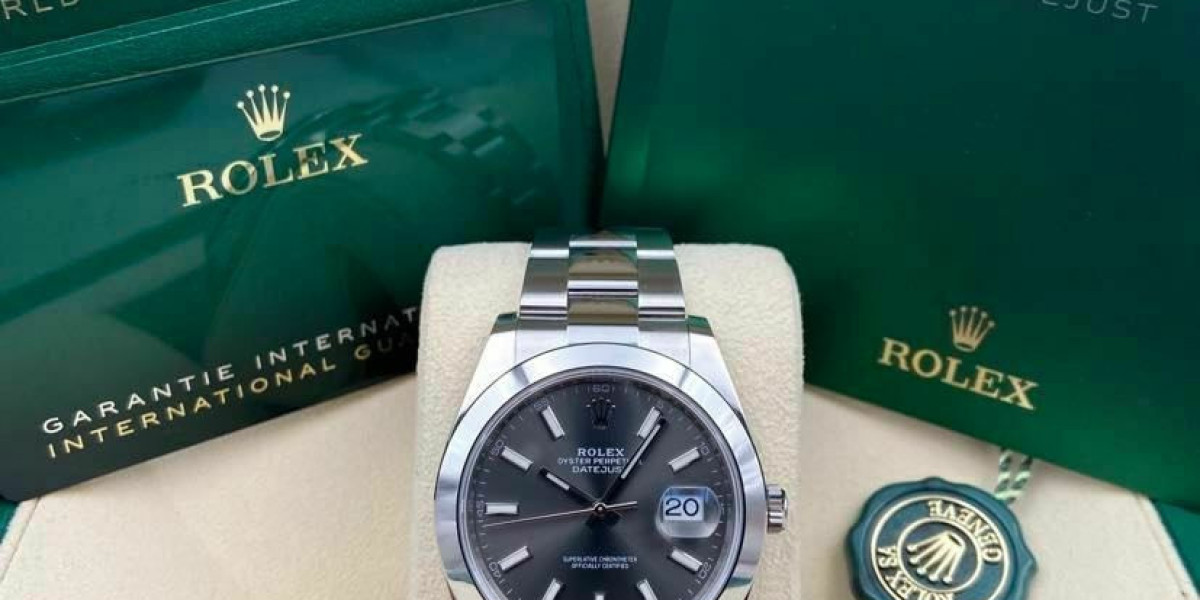The marketplace for counterfeit items, including luxurious watches like Rolex, has been a persistent situation in the fashion industry. As know-how advances and the strategies for producing replicas change into extra sophisticated, questions of legality and ethics come up. One among the most popular targets for counterfeiters is Rolex, a brand recognized for its precision and luxurious craftsmanship. But is it authorized to sell Rolex replicas? The reply just isn't easy and involves a posh web of legal guidelines and regulations.
Rolex, like many excessive-finish brands, fiercely protects its mental property rights, together with trademarks and copyrights. The company invests significant resources in creating and marketing its products, and counterfeiting undermines these efforts. Rolex has a group devoted to investigating and combating counterfeit Rolex watches, working with regulation enforcement companies all over the world to grab and destroy pretend watches. The corporate also actively pursues legal motion in opposition to counterfeiters, including online sellers.
Within the United States, selling counterfeit goods is a violation of federal regulation under the Lanham Act and can result in civil and criminal penalties. The Lanham Act prohibits trademark infringement, which includes selling goods that bear a counterfeit trademark. Rolex holds trademarks for its name, emblem, and designs, and promoting replicas that function these trademarks with out authorization from Rolex is illegitimate. Even when the vendor discloses that the richard mille watch replica (anotepad.com) is a replica, it will probably still be thought-about trademark infringement if shoppers are likely to be confused about the source of the product.
Moreover, selling counterfeit goods also can violate state legal guidelines on unfair competitors and consumer safety. State laws might present extra remedies for trademark infringement and deceptive commerce practices. In some circumstances, promoting counterfeit goods can lead to a lawsuit from the brand looking for damages and injunctive relief. On-line sellers, specifically, face scrutiny from brands like Rolex, who monitor e-commerce platforms for counterfeit listings.
Internationally, the legal panorama for promoting Rolex replicas is also complex. The World Mental Property Organization (WIPO) offers a framework for protecting intellectual property rights throughout borders by international treaties just like the Paris Convention and the Agreement on Commerce-Related Elements of Intellectual Property Rights (Journeys). These treaties present tips for imposing trademark rights and combatting counterfeiting on a global scale.
In nations where counterfeit goods are produced and sold, enforcement of mental property rights could be challenging. Some countries have weak legal protections for trademarks and inadequate sources for implementing anti-counterfeiting laws. This creates opportunities for counterfeiters to function with impunity, producing and promoting pretend Rolex watches without concern of legal consequences. In these instances, manufacturers like Rolex could deal with educating customers in regards to the dangers of buying counterfeit goods and dealing with native authorities to implement their mental property rights.
Despite the authorized risks and moral issues associated with selling Rolex replicas, the demand for fake luxury watches stays high. Counterfeiters often goal consumers who are unable or unwilling to pay the high prices for genuine Rolex watches, offering replicas at a fraction of the associated fee. Some consumers may be unaware that they are buying counterfeit items, whereas others may knowingly seek out replicas as a standing symbol.
In conclusion, promoting Rolex replicas is illegitimate beneath trademark legislation in many jurisdictions, together with the United States. Rolex vigorously protects its mental property rights and takes legal action in opposition to counterfeiters. Worldwide treaties present a framework for combating counterfeiting on a worldwide scale, however enforcement can vary depending on the nation. Despite the legal risks, the market for counterfeit Rolex watches continues to thrive, highlighting the continued problem of combating intellectual property infringement within the fashion industry.








